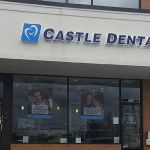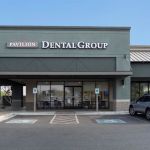Managing Age-Related Dental Conditions: Tips for Older Adults
As I’ve gotten older, I’ve come to realize how important it is to take care of my oral health. Dental conditions related to aging can affect anyone, and managing them effectively requires both awareness and proactive care. In this article, I’ll share what I’ve learned about managing age-related dental conditions, from preventing gum disease to dealing with dry mouth and tooth sensitivity. Whether you’re in your 50s or well into your senior years, these tips can help you maintain a healthy smile.
1. The Importance of Regular Dental Checkups
When I was younger, I didn’t visit the dentist as often as I should have. However, as I’ve gotten older, I’ve realized how crucial it is to have regular dental checkups. Age-related dental issues often develop slowly, so having a dentist look at your teeth every six months can help catch problems early before they become serious. Regular checkups allow your dentist to monitor for issues like gum disease, tooth decay, and cavities, which can be more common as you age.
2. Preventing Gum Disease
Gum disease is one of the most common age-related dental issues, and I’ve personally seen its effects in older adults. As we age, our gums can become more prone to infection due to changes in hormone levels, medications, or simply the natural wear and tear on our teeth. Gum disease starts with gingivitis, which is treatable with good oral hygiene, but if left untreated, it can lead to periodontitis, which can result in tooth loss.
To prevent gum disease, it’s important to brush and floss regularly. I’ve found that using an electric toothbrush can make a big difference, as it provides a more thorough cleaning. I also make sure to floss between my teeth daily to remove plaque that can build up in hard-to-reach areas. Additionally, using an antibacterial mouthwash can help kill bacteria and keep your gums healthy.
3. Dealing with Tooth Sensitivity
Tooth sensitivity can become a real issue as we age. I started noticing it when I began drinking hot or cold beverages, and it wasn’t long before I realized that many older adults struggle with this problem. Tooth sensitivity occurs when the enamel on our teeth wears down, exposing the dentin beneath, which can cause discomfort.
To manage tooth sensitivity, I switched to a toothpaste specifically designed for sensitive teeth, and I’ve been amazed by how much it has helped. There are also desensitizing treatments available at your dentist’s office that can provide relief. If sensitivity becomes severe, I recommend talking to your dentist about options like fluoride treatments or sealants, which can help protect sensitive teeth.
4. Handling Dry Mouth
Dry mouth, or xerostomia, is another common issue that often accompanies aging. For me, it became more noticeable when I started taking certain medications. Dry mouth occurs when the salivary glands don’t produce enough saliva, which can make eating, speaking, and swallowing difficult. It can also lead to bad breath and an increased risk of cavities because saliva helps neutralize acids and wash away food particles.
To manage dry mouth, I always make sure to drink plenty of water throughout the day, and I chew sugar-free gum to stimulate saliva production. I also use a saliva substitute if I’m having trouble during the night. If dry mouth is caused by medication, I’ve found that discussing alternatives with my doctor or dentist can be helpful. In some cases, medications to stimulate saliva production may be prescribed.
5. Managing Tooth Decay in Older Adults
Tooth decay doesn’t stop when we get older, and in fact, older adults can be more susceptible to cavities, especially if their oral hygiene isn’t up to par. I learned that age-related changes in the mouth, like reduced saliva production, can increase the risk of cavities. That’s why I’ve become extra diligent about brushing and flossing, and I’ve noticed that fluoride treatments help protect my teeth from decay.
It’s also important to limit sugary foods and drinks, as these can contribute to the formation of cavities. I try to eat a balanced diet rich in fruits, vegetables, and dairy products, as these foods help strengthen teeth and gums. If you’re prone to cavities, your dentist may recommend more frequent cleanings or fluoride varnishes to keep your teeth in top shape.
6. The Role of Diet in Maintaining Oral Health
What we eat plays a huge role in our oral health, especially as we age. I’ve found that a diet rich in calcium, vitamin D, and other nutrients is essential for keeping my teeth and gums healthy. Foods like dairy products, leafy greens, and fish are great choices for supporting strong teeth and bones. I also avoid snacking on sugary foods throughout the day, as this can contribute to plaque buildup and tooth decay.
In addition to maintaining a balanced diet, I make sure to stay hydrated to prevent dry mouth. Drinking water throughout the day helps wash away food particles and bacteria that can lead to cavities. It’s simple, but it makes a big difference!
7. Dentures and Bridges for Missing Teeth
As we get older, it’s not uncommon to lose teeth, and this can lead to gaps that affect both the function and appearance of our smile. I’ve learned that options like dentures or bridges can restore the function of missing teeth and help maintain a healthy bite. If you’re considering dentures or bridges, it’s important to work with your dentist to find the right fit, as poorly fitting dentures can cause discomfort and difficulty chewing.
It’s also important to practice good care for dentures, including regular cleaning and checking for signs of wear and tear. I’ve found that cleaning my dentures regularly and storing them properly has helped them last longer and keep my mouth feeling fresh.
8. The Impact of Medications on Oral Health
Many older adults take medications for various health conditions, and I’ve realized that certain medications can have an impact on oral health. Medications that reduce saliva production, such as antihistamines, diuretics, and blood pressure medications, can increase the risk of cavities and dry mouth. It’s important to stay aware of these side effects and talk to your dentist if you experience any oral health changes.
In some cases, your dentist may recommend saliva-stimulating treatments or suggest changes in medication. Keeping an open line of communication with both your dentist and healthcare provider is key to managing age-related dental conditions effectively.
Managing age-related dental conditions requires a combination of good oral hygiene, a healthy diet, and regular checkups with your dentist. By following these tips, you can help ensure that your teeth and gums remain healthy throughout the aging process.







 La Petite Dent Pediatric Dentistry and Orthodontics4.0 (386 review)
La Petite Dent Pediatric Dentistry and Orthodontics4.0 (386 review) Castle Dental & Orthodontics4.0 (249 review)
Castle Dental & Orthodontics4.0 (249 review) Casey A. Rutkowski DMD, PA5.0 (205 review)
Casey A. Rutkowski DMD, PA5.0 (205 review) Dr. Yuri Grishko, DDS4.0 (30 review)
Dr. Yuri Grishko, DDS4.0 (30 review) Grayslake Orthodontics4.0 (185 review)
Grayslake Orthodontics4.0 (185 review) Pavilion Dental Group4.0 (151 review)
Pavilion Dental Group4.0 (151 review) The Importance of Oral Health Education During Pregnancy for a Healthy Pregnancy
The Importance of Oral Health Education During Pregnancy for a Healthy Pregnancy Best Tips for Brushing Your Teeth Properly for Healthy Gums: Essential Techniques for Oral Health
Best Tips for Brushing Your Teeth Properly for Healthy Gums: Essential Techniques for Oral Health Why Skipping Dental Checkups Can Lead to Bigger Oral Health Problems
Why Skipping Dental Checkups Can Lead to Bigger Oral Health Problems Advantages of Porcelain Dental Restorations
Advantages of Porcelain Dental Restorations How Can Diabetes Cause Tooth and Gum Problems? Preventing and Managing Oral Health Issues
How Can Diabetes Cause Tooth and Gum Problems? Preventing and Managing Oral Health Issues Healthy Habits for Promoting Good Oral Health and Hygiene: Tips for a Healthy Smile
Healthy Habits for Promoting Good Oral Health and Hygiene: Tips for a Healthy Smile